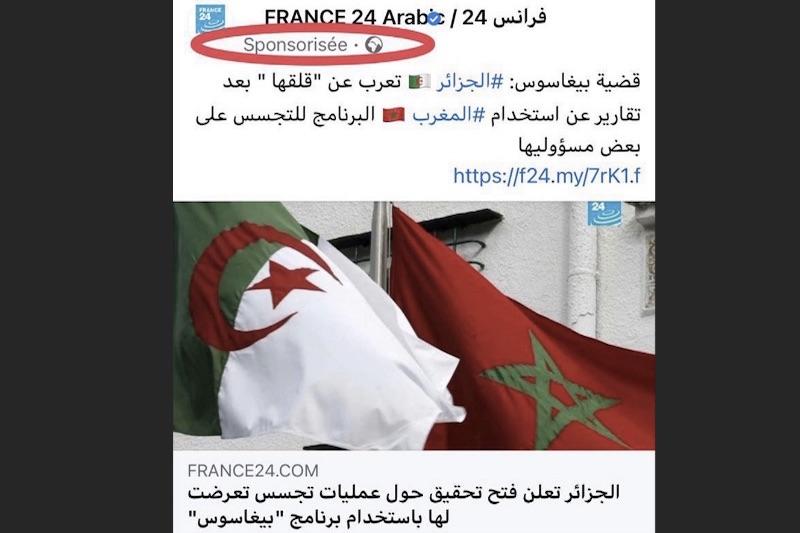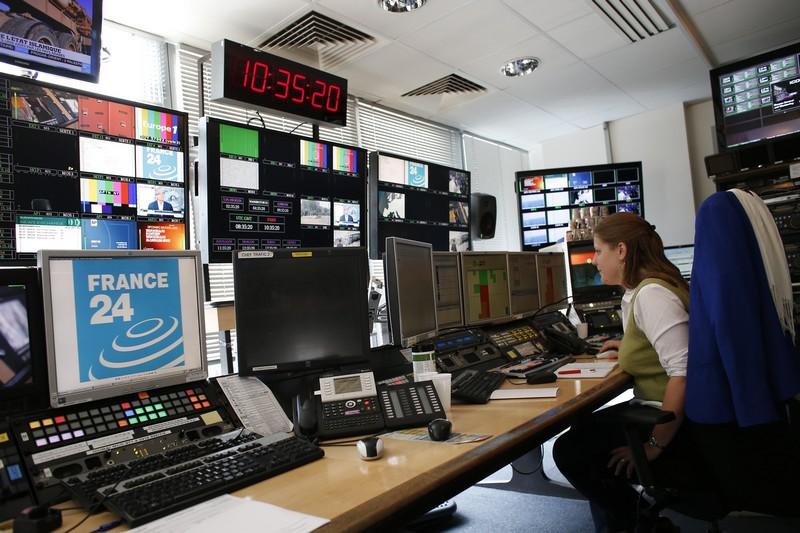Morocco, the French media, and "Pegasus"... A reading of the backgrounds and stakes
It is not by chance that the French public media, simultaneously and in a frequent manner, sharpens all its television channels and radio stations directed to domestic and international public opinion, to fuel and continue the systematic media war against Morocco and antagonize its security interests, after Forbidden Stories, Midiapart and Amnesty International were charged with At first, by launching faint sparks, it would not have found its way to the required media and diplomatic glow, had it not been for the heavy arsenal of malicious propaganda assigned to the French public media pole.
It is also not surprising that France 24, Radio Monte Carlo and Radio France International RFI, all of which are remnants of France médias Monde, which are involved under the banner of the French public media, are involved in the frequent and chronic dissemination campaign of speculation and allegations of the Pegasus spy program, while attributing them firmly to Morocco, despite all the reports The foreign media was talking about the possibility, except for the French public media pole and the press close to the decision-making circles, which were speaking assertively about Morocco, and specifically about its security institutions.
Now that this media war has ended, and the level of rush and attack on the part of France 24 and the rest of the French official and private stations and radio stations has declined, Moroccan public opinion has the right to ask aloud: Can French public money be used to finance propaganda campaigns against Morocco, the important economic partner in North and West Africa? Can French taxpayers' money be wasted by injecting it into the accounts of American social media companies despite the repercussions of the financial crisis related to the Covid-19 pandemic? These questions are due to the fact that the French channels and radio stations were paying sums of public funds to the benefit of the “Facebook” company to support their publications against Morocco and its security services!
Is it conceivable that a French public broadcaster would buy sponsoring support for publications and media materials attacking Morocco out of concern for information and communication only? Is it possible to allow the waste of French public money in a time of health and financial crisis, unless the desired goal is higher and greater than just information and news? How can the simultaneous intrusion, attack and retreat of the French media be justified at the same time and in a harmonious manner, unless there is an official body in secret, serving an undeclared French agenda, and using the mouthpieces of public media propaganda for it.


Mentioning the phrase “French media trumpets,” a community consultation conducted by the Ipsos Institute under the title “Ma Télé Ma radio demain” revealed that “the public media is the voice of France, not the voice of the French.” At the time, a large segment of the French interrogators accused the French public media stations of playing the role of “the mouthpiece of the executive authority,” which was evident in several crucial moments in the contemporary history of France, especially during the period of promoting the treaty establishing the constitution of the European Union, as well as in the wake of the protest and stampede dynamic. The mass towards the public streets in the midst of the protests of the owners of the yellow jackets.
In order to understand the nature and background of the work of channels such as France 24, Radio Monte Carlo International and other France’s media arsenal directed to the hearts of other peoples, it is necessary to first take note of what was written and written by French intellectuals and thinkers about their media arm. The pioneer of existential philosophy Jean-Paul Sartre had previously written in the magazine “les temps modernes” a shocking comment on the role of the French media in beautifying the atrocities of colonialism. And focus on portraying others as bastards.”
As for the French writer Sophie Bachmann, she wrote that “the executive authority in France has always formed a violent resistance front in the face of the independence of the French public media, which has always remained loyal to the directions of this authority.” This assessment is the same as that given by French university professor Gael Villeneuve when he talked about “the lack of governance in the management of the public media pole and in its systematic and extreme closeness to the French executive authority, which inevitably leads to the danger of visible and invisible censorship of the media product.”
And if we take into account that France is trying to deal with Morocco from a new colonial perspective, based on pragmatism and blackmail, and we also invoked the official control mechanisms on the editorial line of France 24, Radio France International and Radio Monte Carlo, then we will understand, without a doubt, the secret and the reason for this frantic French campaign against Morocco, to the extent that the French Governing Councils allowed French tax money to be wasted targeting Morocco and its security institutions.
The most urgent question in this context remains: Why did France's international channels scramble over Morocco, and not the other countries to which the allegations of information espionage are attributed? Is it because of the supposed victims, French President Emmanuel Macron? And why did the French channels play the role of “the drowner”, the judge, the victim, and the claimant of civil rights in the allegations of espionage attributed to Morocco? Is it a disguised process of blackmail in which the French media plays the role of an alternative defender of French economic interests threatened by the Moroccan-American-British rapprochement? Does someone inside France think that Morocco is going through a state of “supposed weakness” due to its multiple diplomatic fronts with Spain, Germany and the eastern neighbor?
All of these questions and more remain open to mere assumption and speculation as many have been the hypotheses, speculations, allegations and accusations contained in Amnesty International's reports and Forbidden Stories regarding allegations of information espionage. But the only certainty is that the French media broke its appointment with objectivity, professionalism and independence, and embarked on a war on behalf of Morocco and its security institutions, exactly as Jean-Paul Sartre said about him: “media deception, counterfeiting and propaganda”; But with the wide exception of the fact that the current French media was not adept at misleading or misleading.










